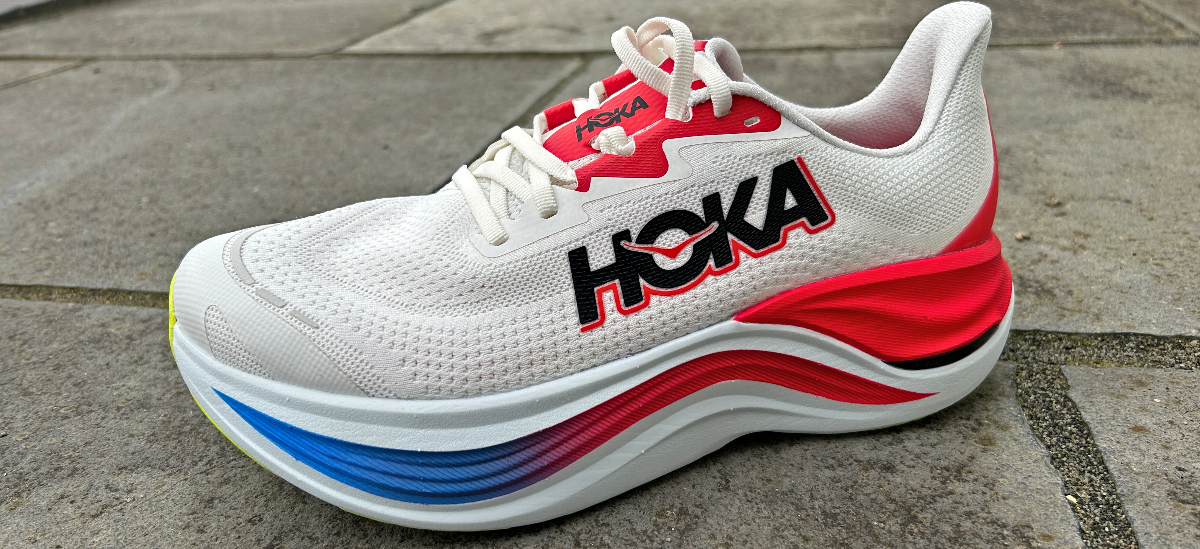Our Verdict
The Hoka Skyward X is a max-stack cushioned shoe that uses Hoka’s best foams and a carbon plate to create a comfortable and bouncy ride for everyday runs. It’s a bit too big and heavy for faster running, and it’s expensive, but it’s great fun for cruising through long and easy runs.
For
- Bouncy ride
- Carbon plate
- Stable and comfortable
Against
- Heavy for faster runs
- Expensive
You can trust Coach
Hoka was one of the first brands to release a carbon plate running shoe designed for easy daily training runs, with the Hoka Bondi X coming out in 2022. That was not a good shoe. It was firm, lacking in bounce, and generally not fun to run in.
The Hoka Skyward X is a different beast. It’s bouncy, comfortable and great fun to use for easy and long runs. It’s too big and heavy for my taste, and I didn’t enjoy it as much for fast runs, but if the price doesn’t put you off then the Skyward X is a springy option for daily training.
Hoka Skyward X: Price And Availability
The Skyward X launched in April 2024 and costs $225 in the US and £185 in the UK. That surprising disparity in prices means it’s a little cheaper than similar super-trainers like the Asics Superblast and New Balance SC Trainer v2 in the UK, but more expensive than those same shoes in the US. Wherever you are in the world, however, it’s not a cheap shoe.
How I Tested This Running Shoe
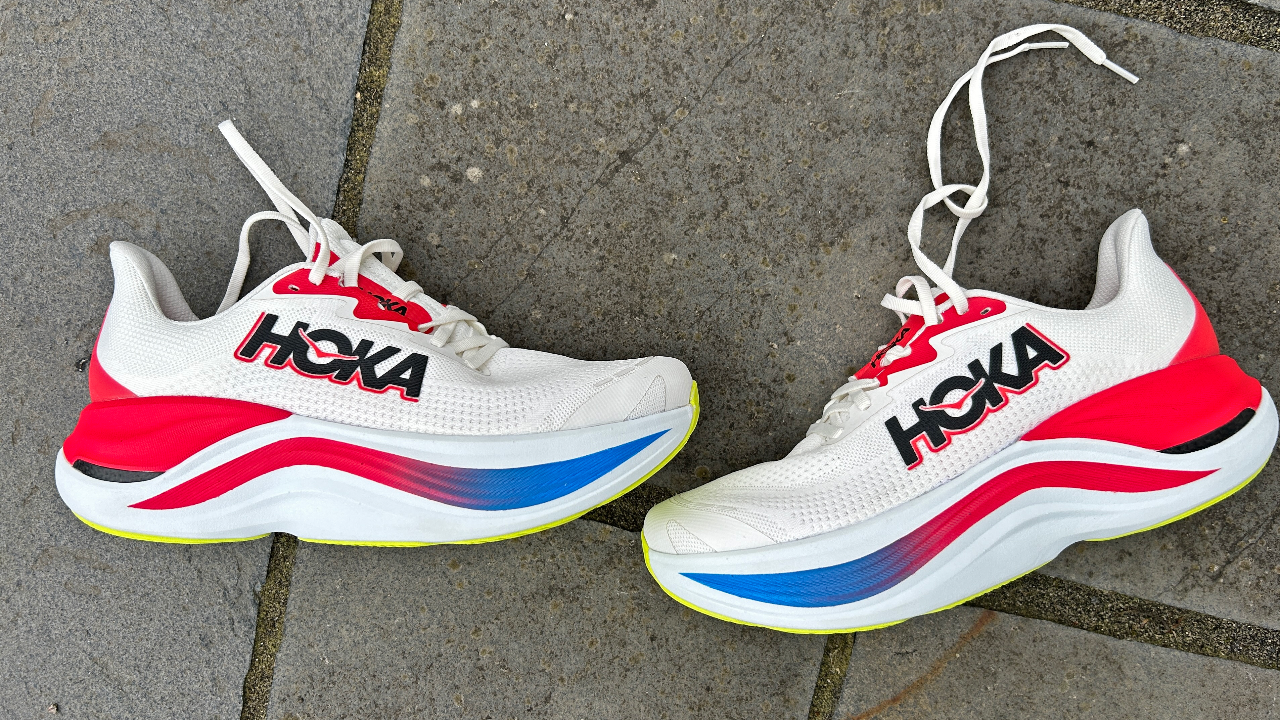
I ran just shy of 40 miles in the Skyward X, using it for a range of marathon training runs including a 15-mile long run. I’ve also tested Hoka’s other carbon plate shoes, including the Mach X and Bondi X, and a range of super-trainers from other brands.
Design And Fit
There’s a lot going on in the midsole of the Skyward X, which contains two foams and a convex carbon plate. The main foam is a bouncy Peba-based material, with a supercritical EVA foam used to create a frame that makes the Skyward X more stable. Your foot also sits within the foam at the back of the shoe, and there’s a large plastic heel counter, both of which increase stability.
The stack height is high—48mm at the heel and 43mm at the forefoot in the men’s shoe, and 46mm at the heel and 41mm at the forefoot in the women’s—with a 5mm drop, and the ride is smooth thanks to the rocker design. All that stack adds up to a heavy shoe: The Skyward X is 11.3oz/320g in my UK size 9, which is heftier than most other super-trainers, with the similarly stacked Asics Superblast weighing 8.8oz/251g.
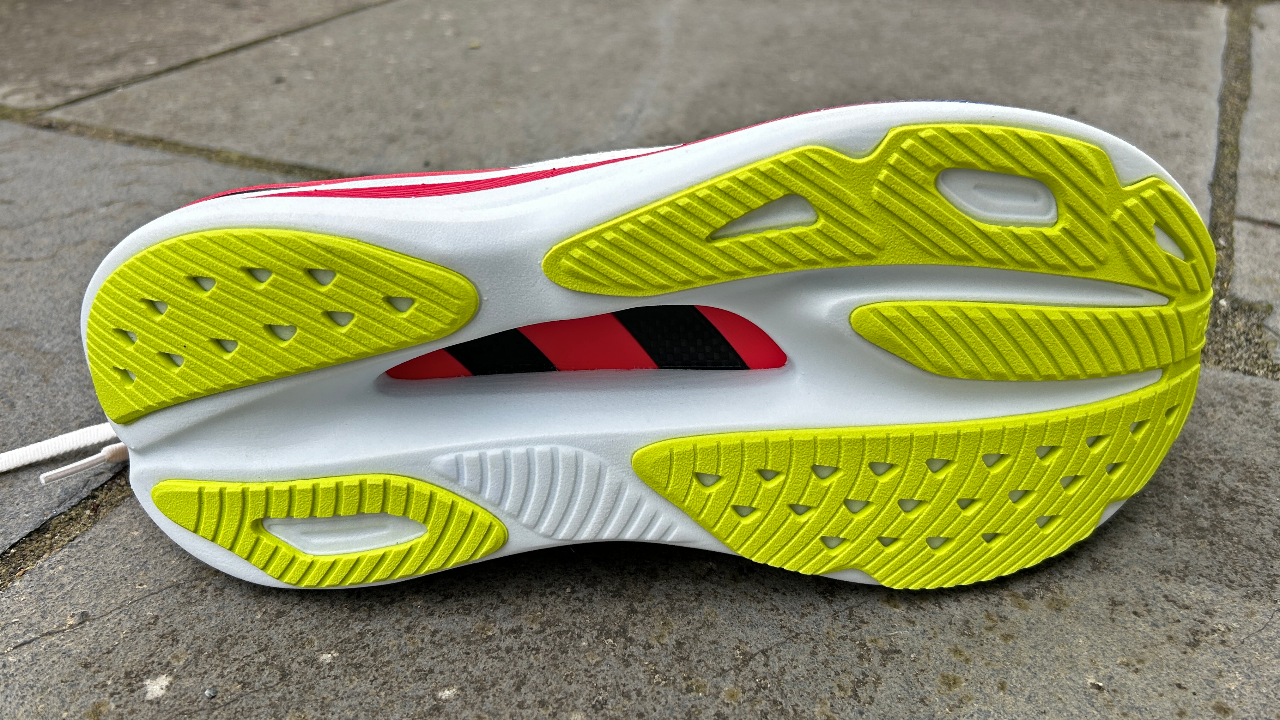
Hoka says the convex carbon plate, which bows upwards in the center, creates a more cushioned and “suspended” feel to the ride. It’s not a full plate, and the gaps in it are visible in the large cut-out on the bottom of the shoe.
The Skyward X has a knit upper with a lot of padding on the tongue and collar for added comfort. I found it fitted well in my usual running shoe size and it’s not as narrow as some other Hoka shoes, such as the Mach 6. There is good rubber coverage on the forefoot and heel, with a thick outsole that should be durable, and which gripped well in wet conditions. I’ve taken the shoe on some light trails too, with no signs of wear and tear from that rougher ground.
Running Performance
The Skyward X is a big shoe, but a deceptively smooth and quick one. My first run in it was 15 miles where most of the first half was downhill and the second half uphill. It protected my legs well when pounding down hills; even when going uphill I was surprised by how smooth and easy to pick up it was for such a big shoe.
Throughout my runs, I’ve consistently found myself moving faster than I expected for the effort level put in. That’s partly because it’s harder to judge speed when you have such little feel for the ground because it’s such a cushioned and tall shoe, but also because the foam and plate combination does a good job of propelling you on your way efficiently.
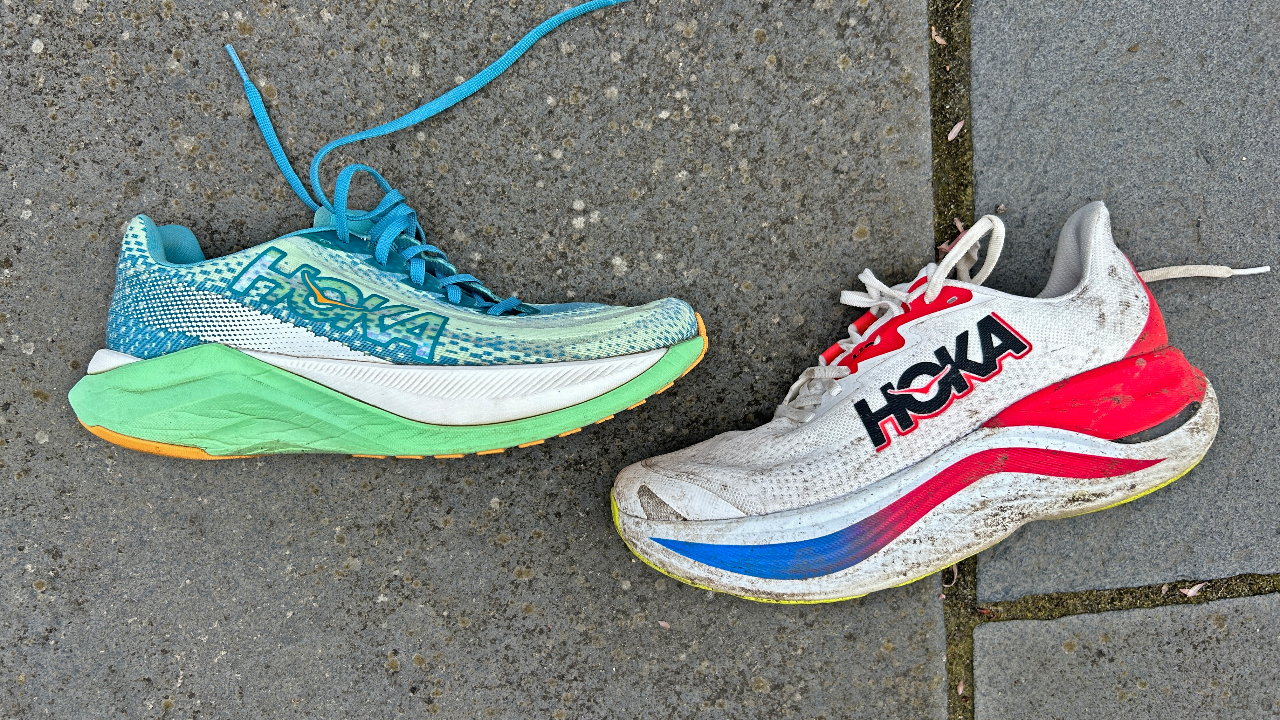
There’s an upper limit to how fast you can run comfortably in the shoe. I did a couple of progressions runs, including one in which I finished at around my marathon pace of 3min 30sec/km and it felt cumbersome for that kind of pace. It’s not as versatile as other super-trainers like the Saucony Endorphin Speed 4 or Asics Superblast, but the Skyward X is more cushioned and comfortable. Cruising through easy runs in the shoe felt great.
Yet, even with all its positives, it will be too big a shoe for some. I prefer the lighter, nimbler feel of other super-trainers or more regular shoes, like the Hoka Mach 6 and New Balance Rebel v4, for most runs, including easy plods. But if you love a cushioned ride, the Skyward X delivers.
Is The Hoka Skyward X Worth It?
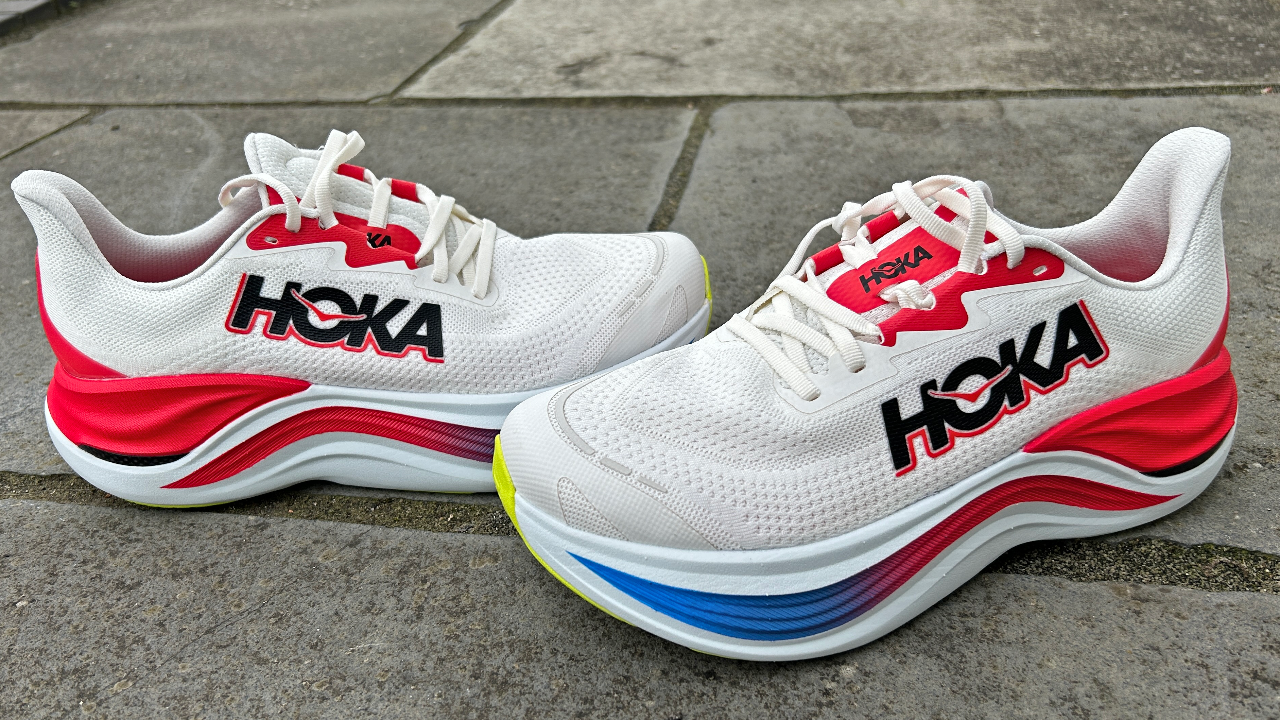
You don’t need to spend so much money to get a great daily trainer. The Hoka Mach 6 or plated shoes like the Saucony Endorphin Speed 4 offer more versatility at a lower price than the Hoka Skyward X. If you’re planning to just use it for easy and long runs then a more normal cushioned shoe like the Brooks Glycerin 21 will do a brilliant job at a much lower price.
The Hoka Skyward X is something a little different from most shoes, however, which may make its high price more palatable to some. It’s more cushioned than other super-trainers, while still pretty versatile and stable enough for daily training. I prefer a lighter and smaller shoe, even for easy runs, and even if you love a max-cushioned shoe the Asics Superblast is another cushioned (and expensive) option that is lighter and more versatile than the Skyward X. The Hoka is bouncier and more comfortable, and it won me over during my testing.

Nick Harris-Fry is a journalist who has been covering health and fitness since 2015. Nick is an avid runner, covering 70-110km a week, which gives him ample opportunity to test a wide range of running shoes and running gear. He is also the chief tester for fitness trackers and running watches, treadmills and exercise bikes, and workout headphones.
